The Beginners Guide to healthy habits for kids.
Healthy Habits for kids is a topic i’m really passionate about.
I want to help you live a comfortable and productive life by teaching your children to create a habit of everything healthy and beneficial to them and their lives.
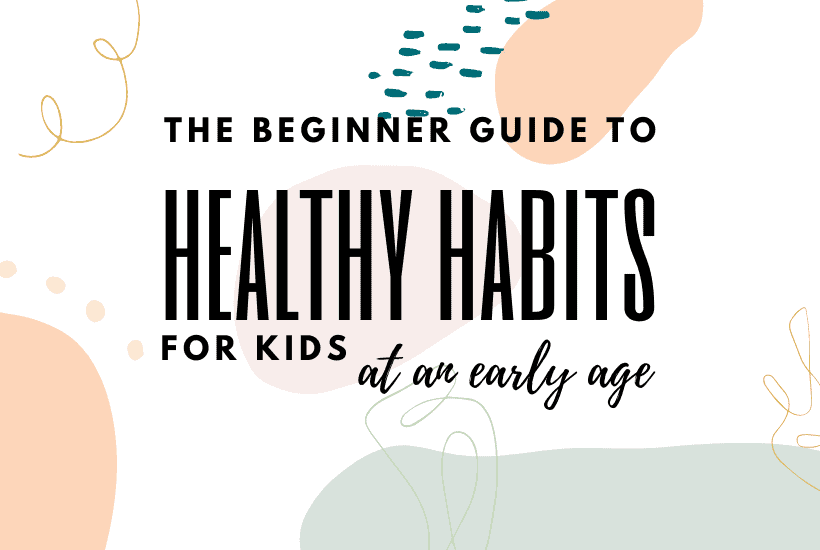
What are habits?
Habits are consistent rhythms created to help your Mind be free. They are simply rituals designed by doing things repeatedly until it doesn’t require any thought anymore and is automatically done.
Things like brushing your teeth, looking in the mirror first thing in the morning, and getting dressed are habits.
I was a synchronized swimmer for most of my life, and for as long as I remember, I used to wake up at 4:30 am and head to the training at 5:00 am before school.
When I stopped playing synchronized swimming; My car drove me to the club rather than the university, every morning when I started college. I was always late..
It was short-wired into my brain. It was a habit that I created for a long time, and it took me a while to rewire my brain. But yes, the route you take to work, or school is one of the habits we have.
Our magnificent Mind creates those short cuts to free up space for more complex tasks.
Kinds of Habits?
We all have habits that we use every day. Those habits can be divided into three groups:
- Autopilot habits; are the ones developed over the years, and we do them without noticing, like checking the mirrors when we get into the car.
- Healthy habits; that we work hard to establish like exercising, eating healthy, and a lot more
- Bad Habits; are like smoking, lying, and procrastination.
Why is it essential to start healthy habits at an early age?
When our children are young, their minds are incredibly flexible in learning new things.
Taking advantage of those formative years can help your child have a much more comfortable, healthier life and provide you with a peaceful mind.
How many times do you remind your child to brush his teeth? And how many times did you remind him to go read or say thank you?
Imagine how comfortable and productive your life will be if he does those things out of a habit and doesn’t need reminding.
Don’t wait till your child can understand what you are saying. Kids pick things up by example.
What good habits can be taught from an early age?
Here is a list of 20 good habits you can instill in your child at an early age
Healthy habits for the Body
Good hygiene
Teaching good hygiene at an early age is a game-changer.
Hand washing
Building hand-washing habits take time, It needs a lot of reminding at the beginning.
Your child should wash their hands before and after they eat. After they use the toilet and after touching animals or anything that might contain germs like Waste garbage, things from the street, or pet food.
Teach your child the 5 steps to wash their hands and make it fun by using nursery rhymes, songs, and games to help motivate them to wash their hands
Tooth brushing
People should brush their teeth twice a day but if you have to choose one, then help them learn to brush their teeth at night before they sleep.
Healthy oral hygiene is crucial to maintain oral health.
As soon as your baby gets their first tooth, start by brushing your child’s tooth with a suitable toothbrush for their age. When they begin holding stuff, help them create the habit by assisting them in carrying the toothbrush and showing them how to do it.
Brushing your teeth with them is a great motivator to start doing the same.
Creating a fixed time like as soon as they wake up or right before they sleep will help make it a habit and create a hard to break routine.
Covering their mouth when they sneeze
Teach your child the right way to cover their mouth when they sneeze. Your child should cover their mouth with the crease of their elbows to prevent the distribution of bacteria.
Shower Regularly
Create a showering routine that works for you. I used to shower my kids daily when they were babies, but now, with 3 curly-haired girls at the age of 5,8, and 11, they shower twice a week, so their hair isn’t stripped, and I have the peace of mind of not brushing their hair all at once.
Healthy Eating habits
Teach your child about healthy eating habits by talking about the kinds of nutrients that help their bodies grow.
Help them concentrate on drinking lots of water instead of juices and other sugary drinks.
Eat-in rainbow color; think of food in color as each color has different nutrients. Help them make sure that their plate has all colors green, yellow, orange, and red.
Eat three to 5 portions of fruits and veggies. And swap white flour with whole-grain whenever you can.
Healthy Sleeping Habits
Studies have shown that children who get enough sleep according to their age and have great sleeping patterns; have improved attention, concentration, development, behavior, and learning skills.
Creating healthy sleeping habits and a great night time routine is essential from an early age.
The earlier you begin, the easier your life will be as a parent.
Staying active
I like to call it the daily movement and the daily fresh air. Urge your children to go outside. Our homes can be stuffy, and studies have shown that a child who spends more time outdoors has a better immune system.
A little bit of exercise can go a long way. Try to think how long does your child sit (Doing homework, watching TV, or even read and play)
You don’t need to enroll them in daily sports to get them to move. Things like active play, jumping the rope, or dancing is all you need to help them create healthy habits.
Healthy habits for the Mind
Exploring
Exploring; is your first way to learn and create great learning Habits at school. A curious child is a child that loves exploring, and it’s such a great strength that you should develop.
I know that a curious child might be hard to handle because of all the drawers they are opening and all the things they are trying to explore. Caring for an interested child needs a lot of work on your part to keep them safe.
But by creating the right guidelines, you can truly help your child explore the world around them in a safe way and really enhance their development.
Reading
You know how essential reading is for your child’s development. We all want to raise readers. But how do we do that? Your child doesn’t like reading, so how can you help them not just love reading but become avid readers?
Follow me as I share with you how my daughters moved from hating reading to reading 2 books (300 pages each) per week.
Play
I love to call play; The Kid’s Job. Yes, it is their job. How long do you or your spouse spend working per day?
The average amount that an adult spends working is around 8.8 hours. And that’s the amount of time that your child should spend playing.
Play is how your child learns. It helps them manage their feelings. And cope with daily life challenges and situations.
Creativity
Daily acts of creativity maximize children’s ability to imagine and hone on self-expression. It also helps children try new ideas and create new situations in which they use their problem-solving skills.
Creative activities include art, role play, acting, and anything that they use their creativity to express themselves
Healthy screen habits
We now live in an age where screens are essential, and it’s everywhere. Kids as early as 2 years old can use pads and iPhones. Schools use online learning.
We google everything from what to eat or wear to news and medical advice.
The media has made parents believe that educational games can help their children focus, become better at school, and even learn a new language.
But research has shown otherwise.
You have to know the truth about what this is doing to your child’s brain and how it affects their development, growth, and focus.
Follow my Instagram account to know more about how screen technologies affect us, our children, and their mental and physical health.
Teach your child to choose what benefits them. How much time should they use screen technologies and the safe way to use them.
Think about it this way, Screens are junk food for the brain. Would you feed your child junk food all day, every day? I know you won’t. None of us would.
What kind of nutrition would you instead feed your child’s brain?
Let me know in the comments.
Healthy habits for the Soul
Gratitude
If your child likes using pen and paper, start a gratitude journal. Where they state what they are grateful for on this day.
Help them write 3 things every day. This will help your child see the good that happened on this day rather than what he didn’t get or what made him sad.
If you are a family who eats dinner together, it is an excellent habit to start. You can make it part of the conversation where each one on the table can say one to three things they are grateful for.
Start this as early as your child can talk. It will make it so much easier for their brain to think about the positive instead of the negative. See the glass half full.
Starting a gratitude practice can be extremely beneficial for the Whole Family.
Prayers
Prayers give hope. The hope of visualizing your dreams and goals coming true. Creating a habit of praying and showing your child how to pray for themselves and others.
Prayers are an opportunity for us to talk to God with no judgment about what’s bothering us. A safe place where your child can talk openly about their hopes, their dreams, and even their mistakes. Give thanks and feel connected to God and the world.
When children learn to pray for others, they become more selfless. Feeling that they have contributed to their Family in such a small yet significant gesture. It makes them think that they can change the world, even if it’s just with a prayer.
Affirmations
Affirmations are something we have been learning about in the past 5-10 years. But it’s a potent tool.
Affirmations are a way to affirm ourselves on our most vital traits. Which really helps create inner confidence and awareness.
A lot of the people I coach find it extremely difficult to tell me their strengths. When I ask them about what they appreciate about themselves. They often find it weird to talk about themselves, and it takes them so much effort to come up with what they love about themselves.
We often mistake this with being egocentric and selfish. But let me ask you this? How can someone run a marathon without knowing that they can
Whether you think you can or you can’t, you’re right.
Henry Ford
So let’s help our kids start the habit of believing in themselves and knowing their strengths.
Healthy Habits for developing good values
Obey safety rules
You know the saying rules are meant to be broken. Well not all rules are made to be broken. There are some rules that we should not test.
When the rules are made to keep us safe, we should always learn them, understand them, and know why we should follow them.
We shouldn’t teach our kids to be blind obeyers but rather thinkers and analyzers. And when safety rules are made to keep us safe, teach your kid not to test them.
5 Safety rules that our kids should learn
- Wearing the seatbelt
- Never go anywhere with strangers
- Don’t keep secrets from Parents
- Body safety rules
- Internet Safety Rules
Politeness
Kids should get into the habit of saying please and thank you.
Say hello to greet people. Try not to force your child to kiss or hug friends and family members if they don’t feel like it. Saying Hello is more than enough to be polite to others.
Giving
Teach your child to contribute at home, Do chores, Help you with things you need, or get tired.
Help them take responsibility towards their siblings by reading to them or making breakfast for one another or things as small as bringing each other a cup of water.
What that does is that it helps your child feel that they contribute to the world. It helps them become more resilient and learn that they are part of a bigger world. That life doesn’t revolve around them but that they are essential contributors to the happiness of others.
How will you feel if you had the flu and felt so tired that you couldn’t get out of bed? Only to find your kids bringing you breakfast in bed and taking care of each other while keeping the home clean.
It’s not impossible. All it takes is for you to help your kid with the habit of giving and contributing from a very early age.
It will teach them to share, to think about others, become more generous and responsible.
Kindness
Kindness is a muscle that needs practicing. When we create a habit of being kind, we exercise the kindness muscle and start seeing the joy that the acts of kindness bring us.
Small acts of kindness can be as little as a pat on the back when mummy does something that makes her feel good or as big as helping in a shelter.
But it sure starts when they are young. Learning How to help someone feel happy through words of kindness and appreciation begins with the parents.
Lead by example and switch from words of judgment to words of kindness.
When my kids say something mean, I like to ask them how they think this made the person feel and how they can change their words to bring the person joy rather than sadness.
It also really helps to ask them how they felt when they did the act of kindness.
Emphasizing good behavior helps them repeating the good behavior again and again
Honesty
What is the thing that you fear the most? We mainly fear for our kids’ safety. To be able to say no to cigarettes and any other bad behavior. We want them to stand for their values.
But when a child fears being a disappointment, they hide things from us and hide things from us. We lose because we can’t protect them from what we don’t know.
Be there for your child. Don’t make them feel like they are a disappointment. We all make mistakes, and we need to talk about them to our loved ones to learn from them.
Create a safe environment for your child to talk with you about anything. Nothing is beyond expressing.
Lead by example and always tell your child the truth. Choose words that are appropriate for their age, but always tell them the truth.
Resilience
Building resilience helps our kids overcome obstacles and challenges.
In movies, the most challenging problem is solved within 15 minutes to two hours.
So for our children, they don’t understand why they can’t learn to jump the rope in one sitting or why they need to work for something.
We all want our kids to be resilient, to work hard for what they want. But how do we teach them to be resilient?
Resilience needs 6 core components.
- self-awareness
- Positive affirmations
- purpose
- self-care
- Positive connections
- self-motivation
When we strength those components, children become more resilient.
Common Questions/FAQ About
How to get started with habits?
Start small, don’t get overwhelmed. I like to put 2 goals every 12 weeks and focus on them. It’s my 12 week secret to accomplishing everything I want in life. Even my coaching program is a 12-week program.
If you followed the 12-week formula and set up only 2 goals every 12 weeks, you would ace 24 things by the end of the year.
How can I help my baby develop good habits?
Babies are great observers, imitators and are incredibly resilient. Try leading by example. Use words of encouragement to help them realize the good job they did and create routines to help them know what to expect.
Your baby adores you and wants to do and be everything that you are or do. So take advantage of that and help them do what you do.
How do you explain good Habits?
Use the 3 T’s everyday “Truth, Talk and Trust”. Create a safe environment to create productive conversations. Help your child feel that you are their bestfriend and that you talk to them about everything.
Ask questions that sparks creativity and problem solving abilities.
Questions like ” what do you think is a good habit? and how do you think it will make your life easier, happier or more productive?
Listen to them. Kids can surprise you so listen with curiosity.
How do you develop good habits?
Developing good habits requires consistency and establishing some kind of routine.
Try to make it fun so that your child would look forward to making the habit.
Habits manly need three things, as mentioned in the book “The Power of Habit” A reminder, a routine, and a reward.
At what age should a child learn table manners?
You should start teaching table manners before a child turns three.
If you didn’t start them before three, you would spend more time later unteaching bad manners. Try not to stress about it and start small. Take it one step at a time.
At what age should a child say thank you?
Some kids can start saying words that resemble please and thank you as early as 18 months old. But don’t expect it to be consistent.
Let them hear you clearly say please and thank you, and they will definitely get the cue.
Which habits are most useful?
This differs from one family o the other. To see what is crucial for you and what aligns with your family values and start with it.
Generally speaking, anything that is healthy nutrition for their brain, body, and soul, Like reading, staying active, personal hygiene, honesty, and resilience.
What is a good study habit?
Studying and doing school work can be the thing I see parents struggle with the most.
Some of the things you can do to create great habits are
- Make studying less of a chore and more fun
- Encourage Self-learning and independence
- Help your child learn from Mistakes rather than feeling like a disappointment
- Learn Time Management
- Avoid rewards and punishments
- Create an inviting place
- Remove distractions
What are the 10 bad habits?
Bad habits are habits that form when we feel the weakest.
- Lying
- Watching TV when bored
- Checking the phone first thing in the morning
- Nail-biting
- Hair pulling
- Biting
- Binge eating
- Sitting on the couch for long periods
- Nose picking
- Thumb sucking
Tips for Success in building habits
Start small, and acknowledge the times when you or your child succeed. Make them feel so proud of themselves that they want to keep doing it repeatedly until it becomes engraved in their lives.
The Last Thing You Need to Know about Creating habits for kids.
Habits are essential as they can make a parent’s life easier.
Think about how proud you’ll be when your child wakes up, make their bed, brush their teeth, do their homework and their chores, and end it by kissing you and giving you a hug because they feel like capable kids
You can raise capable, responsible, and well-behaved kids by focusing on building habits and replacing the bad ones.
Share this post if you think it’s going to help other moms create a more comfortable life and raise capable kids.

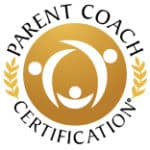
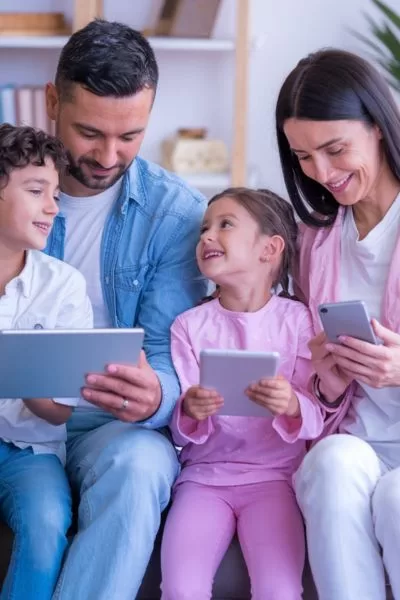


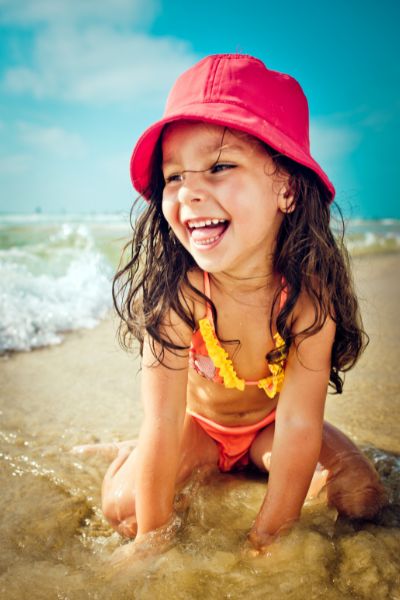
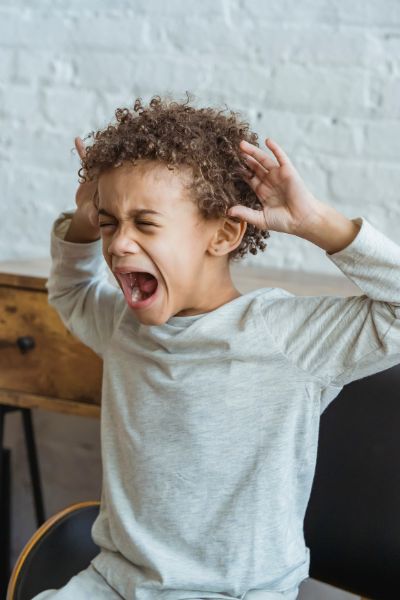
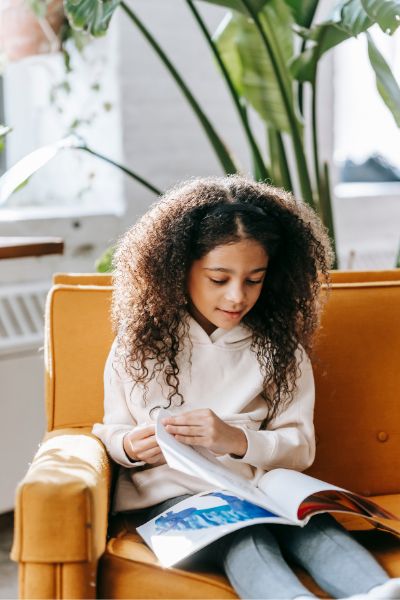
One Comment